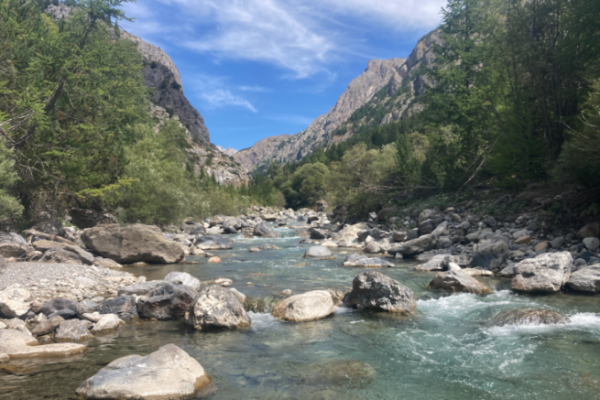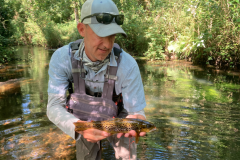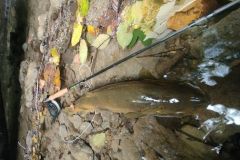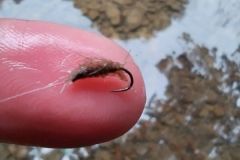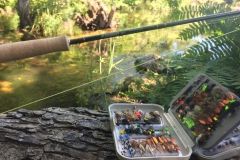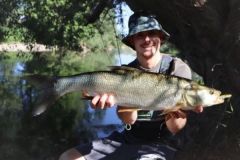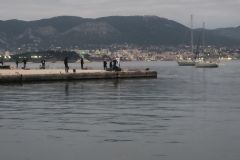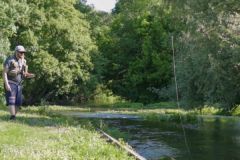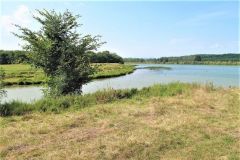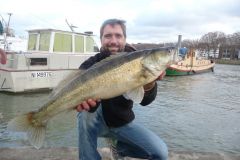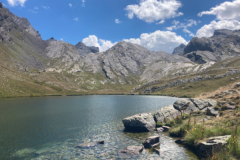Fishing in Alpes-de-Haute-Provence
The Ubaye rises in the Alpes-de-Haute-Provence department, on the border with Italy, at an altitude of 2655 metres near the Col du Longet. It flows for 82 km before joining the Durance to form the Lac de Serre-Ponçon, created in 1959. It passes through a number of towns, including Jausiers and Barcelonnette, which are the most populous and attract the most tourists.
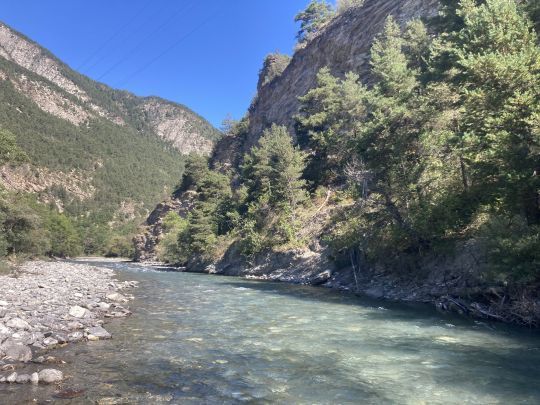
Tours around Jausiers
Jausiers, at an altitude of 1,250 meters, lies on the upper third of the Ubaye river. It is between 15 and 25 meters wide, depending on the season, and offers rapids and deep holes.
It is a large mountain torrent fed by several tributaries, the main one being the Ubayette, which flows out of the Lac du Lauzanier, but also the Bachelard at Barcelonnette, the Parpaillon and several Riou.
I've been lucky enough to fish there since I was very young, my family owning an apartment in this pretty commune. My father and I often went there for opening day, and even at the stroke of midday, the trout would gobble up the occasional red sedge and plecopter on the banks when the sun came out to warm the water.
In March, flows are often variable, but stable until the water begins to melt. It's from late April onwards, but especially in May, that the melt can reduce fishing chances to zero. You'll often have to wait until June and then July to take full advantage of active trout, whether nymphing or dry-fishing.
Between Jausier and Barcelonette, the river offers a variety of courses, some of them very fast, but also with calmer, deeper sections. The river widens on this stretch from Jausiers.
I've fished more often around the commune of Jausiers and upstream, where wadding is often "easier" and fly fishing more productive, especially with nymphs.
Between Jausiers and Saint Paul/Ubaye, there are some very beautiful areas, although the road runs alongside the river and fishing pressure can be greater there, but the trout are very present and display their characteristic coat with numerous small red dots.
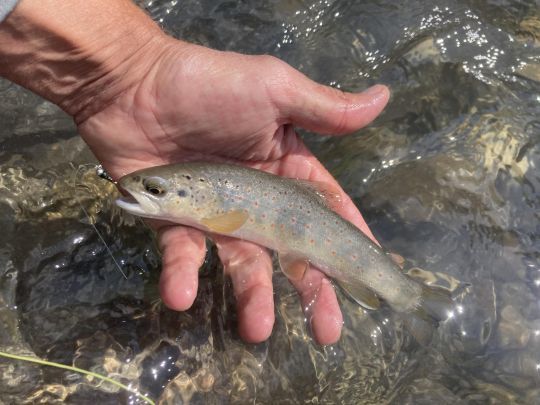
Saint Paul sur Ubaye sector and upstream
From Saint Paul sur Ubaye onwards, the river becomes smaller as you are a few kilometers above its confluence with the Ubayette, its main tributary (fishing possible). The river is more entrenched and therefore even faster, while offering a few small flats and deeper holes.
Trout are often small, fast and lively in these areas, and will move up to dry conditions as soon as the water warms up. They're not very fussy, but watch out for dredging! Line and tandem nymph fishing allow you to catch fish all day long. Tavana or deer-hair flies, which float high on the water and support heavy nymphs well, are recommended. In these fast-flowing currents, you need good visibility for dry flies and weighted nymphs that will reach the right depth quickly on specific spots. Trout, especially locusts and grasshoppers, are not reluctant to get on land during the summer months.
On the downstream section of the Pont de l'Estrech in the commune of St Paul, AAPPMA la Truite de l'Ubaye offers a "No-Kill" course that is both interesting to fish and easy to access.
Upstream from St. Paul and on the way up to Maljasset, you must stop at the viewpoint on the Pont du Chatelet for the beauty of the site. The Ubaye has carved a path through the rock and cascades into deep gorges. The valley and scenery are breathtaking. A real pleasure to land your flies in such a breathtaking setting!
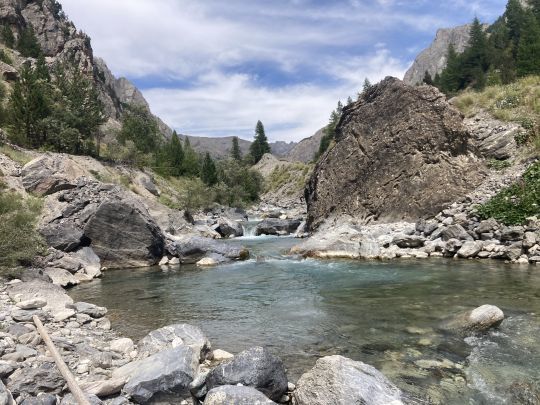
Further upstream, following the D25, the river is sometimes close to the road, sometimes further down the valley. Don't hesitate to walk a little to get to the less popular routes. In some areas, the river forms a multitude of small basins and waterfalls that are well worth a look and interesting for fishing. Trout lurk in these gullies, waiting for any prey. It's great fun fishing in sublime surroundings!
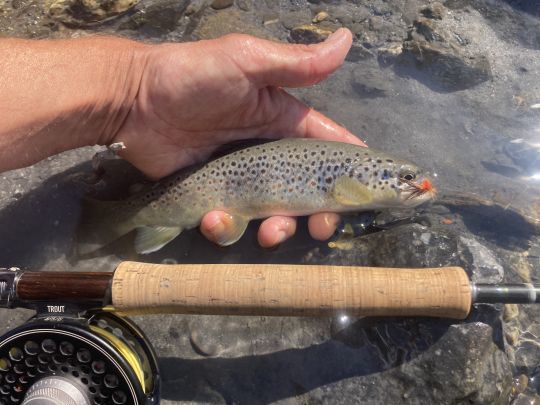
Fast water fishing where all techniques can be used
The Ubaye is a fast-flowing river, and in its section upstream from Jausiers is considered a large torrent. In this type of configuration, all types of fishing can be practised.
The line nymph excels in all seasons in fast, powerful currents. This allows you to get close to the fish, which will take advantage of the opportunity!
For surface fishing enthusiasts, afternoons are often the best time, as even in summer the water remains cold (12 to 14°C). One of the most popular techniques is dry-nymph or tandem fishing, which allows you to enjoy a few trout while catching many fish on the nymph, especially in summer when they are more inclined to rise into the water column. Depending on the flow and position of the water, adapt the weight of your flies to get the right speed and height of water. Dark nymphs with a bit of shine (silver copper or flash krystal strapping) are often productive. If bites are slow to appear, don't hesitate to switch back to line for deeper fishing.
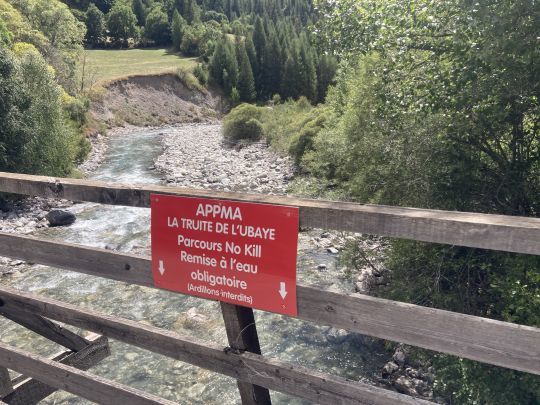

 /
/ 